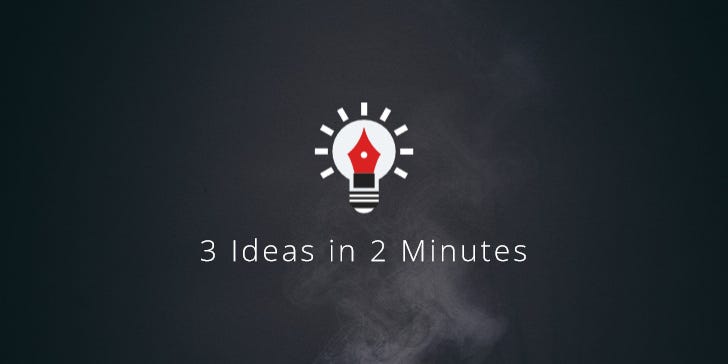#212: Selective Laziness, Ultracrepidarian & the Origin of Opinions
3 Ideas in 2 Minutes on Thinking about Opinions
I. Selective Laziness
Are we more or less critical of other people’s opinions as opposed to our own? In a 2016 experiment, Trouche et al. had participants first produce arguments and then evaluate those that other people came up with for the same problem. The catch: Without them noticing, some participants were fed back their own arguments. If you’ve been reading this newsletter for a while, the result won’t surprise you:
[P]eople are more critical of other people’s arguments than of their own, without being overly critical: They are better able to tell valid from invalid arguments when the arguments are someone else’s rather than their own.
—Trouche et al., The Selective Laziness of Reasoning
We’re lenient when it comes to assessing our own reasoning. But if someone secretly feeds us back our own arguments as if they came from someone else, we judge them more harshly. This Selective Laziness is reminiscent of other phenomena such as Motivated Reasoning and Reactive Devaluation. So the best way to question your opinions seems to be to attribute them to someone else.
II. Ultracrepidarian
Ultracrepidarian is a fancy word for someone who confidently gives opinions or advice on things he or she doesn’t understand. The term originates from the Latin phrase ultra crepidam, meaning “beyond the sole”.
It traces back to a story about the ancient Greek painter Apelles. A shoemaker (sutor in Latin) once criticised the way Apelles had painted a sandal. When he started criticising other aspects of the painting, Apelles responded: “Sutor, ne ultra crepidam” (“Shoemaker, not beyond the sole.”)
If we only spoke about topics we’ve studied professionally for ten years, life would be a pretty dull affair. But we all know the childless parenting coaches who judge every parent they see, convinced they would never let their future child throw a tantrum in public. Or the policing experts who’ve never thrown a punch, but have a strong opinion on how to peacefully stop a knife-wielding attacker.
III. Origin of Opinions
Our opinions can often be traced back to a gut feeling, which in turn may have its origin in supposed facts. American writer and reporter Walter Lippmann wants you to question those origins:
It is often very illuminating to ask yourself how you got at the facts on which you base your opinion. Who actually saw, heard, felt, counted, named the thing, about which you have an opinion?
Was it the man who told you, or the man who told him, or someone still further removed? And how much was he permitted to see? […]
You can ask yourself these questions, but you can rarely answer them. They will remind you, however, of the distance which often separates your public opinion from the event with which it deals. And the reminder is itself a protection.
—Walter Lippmann, Public Opinion
🐘
Have a great week,
Chris
themindcollection.com

